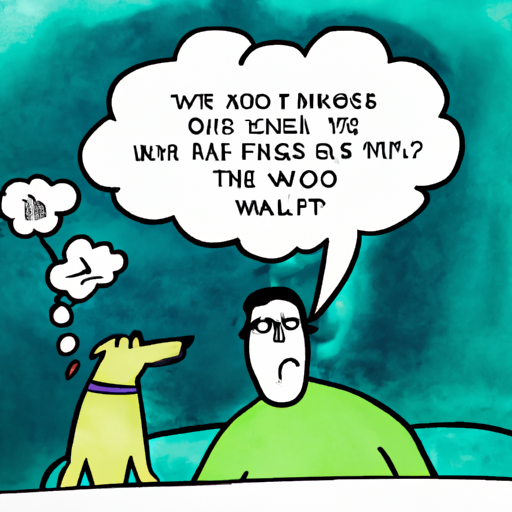If you’ve ever been in the room when your dog lets one rip, you know that it’s not a pleasant experience. The question that’s probably crossed your mind more than once is, “Why do my dog’s farts stink so bad?” Understanding the reasons behind your canine companion’s gassy issues could help you find a solution, improving the air quality in your home and potentially your dog’s overall health.
Table of Contents
- Digestive System of Dogs
- Common Causes of Dog Farts
- Dietary Solutions
- Medical Concerns
- Frequently Asked Questions
Key Takeaways
- Dog’s farts stink due to the by-products of the bacteria that live in their intestines.
- Certain foods can cause more gas production in dogs.
- Health issues may also result in smelly gas.
- Changing your dog’s diet and ruling out medical issues can reduce the stink.
Digestive System of Dogs
Before diving into the reasons behind your dog’s smelly gas, we need to understand a bit about their digestive system. Unlike humans, dogs have a shorter digestive tract, which means that food moves through their system at a faster pace. As food breaks down, gases are produced. These gases are a mix of nitrogen, oxygen, methane, hydrogen, and sometimes sulfur. The latter is the culprit behind the foul smell of your dog’s farts.
Furthermore, dogs are not as efficient at digesting certain types of foods as humans are, particularly those high in complex carbohydrates. When these foods reach the colon undigested, they are fermented by bacteria, which results in the production of gas.
Common Causes of Dog Farts
One of the main reasons your dog’s farts may smell so bad is diet. Certain foods can cause more gas production in dogs. These include foods high in sulfur, such as broccoli, cauliflower, and Brussels sprouts. Foods high in fiber can also lead to increased gas production. Here’s a handy list of foods to be mindful of.
Another factor is the speed at which your dog eats. If your dog wolfs down their food, they are likely swallowing a lot of air, which can contribute to increased gas production.
Dietary Solutions
If your dog’s farts are becoming a problem, there are a few dietary changes that you can consider. Try feeding your dog smaller meals more frequently throughout the day, which can help reduce the amount of gas produced. You might also want to consider a higher quality dog food that has fewer fillers and more easily digestible ingredients.
Also, try to avoid giving your dog leftovers or table scraps. Not only can these foods lead to obesity and other health problems, but they can also be a significant contributor to smelly gas.
Certain dog food brands, as listed on OneTopDog, focus on providing high-quality, easily digestible ingredients that reduce the amount of undigested food in the colon, thus reducing gas production.
Medical Concerns
While diet is usually the main cause of smelly dog farts, there can sometimes be underlying health issues at play. Conditions such as pancreatitis, intestinal parasites, and food allergies can all lead to increased gas production. If you’ve tried changing your dog’s diet and they’re still producing smelly gas, it might be worth discussing with your vet. Here’s a helpful guide on recognizing when your dog’s gas might be a sign of something more serious.
Frequently Asked Questions
1. Are some dog breeds more prone to gas than others?
Yes, Brachycephalic breeds (those with flat faces like Bulldogs and Pugs) are often more prone to gas due to their anatomy. Also, larger breeds like Boxers and Retrievers tend to have more gas issues.
2. Can dog farts be a sign of a serious health issue?
While smelly farts can be normal, excessive flatulence can be a sign of a health issue such as food allergies, gastrointestinal disease, or pancreatitis. If your dog’s gas is accompanied by other symptoms like diarrhea, vomiting, or loss of appetite, consult your vet immediately.
3. Can dog farts be prevented?
While it’s not possible to completely prevent your dog from farting, there are steps you can take to reduce the frequency and smell. These include feeding a high-quality diet, avoiding gas-inducing foods, and making sure your dog eats slowly.
This journey into understanding the stinky world of dog farts may have left you feeling a bit winded (pun intended). But remember, knowledge is power. Now that you have a better understanding of why your dog’s farts stink so bad, you can start implementing changes to make life a little more pleasant for both of you. As always, when in doubt, consult your vet.
For more detailed information on dog health and behavior, check out the following articles on OneTopDog:
– Why do dogs eat grass?
– Dog food allergies
– Best food for your dog



